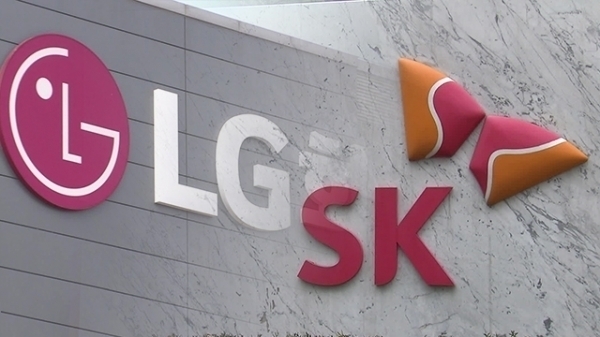Upping the ante in its battle with rival SK Innovation after a victory in the US International Trade Court, LG Energy Solution on Thursday threatened further legal action in Europe and South Korea.
In a final ruling delivered Wednesday, US time, SK Innovation was slapped with a 10-year ban on importing lithium-ion battery products to the US, with a grace period of up to four years, for stealing trade secrets from LG Energy Solution.
“It’s difficult to say SK Innovation’s theft of LG Energy Solution’s technology and the damages it has inflicted are confined to the US region. LG Energy Solution believes such damages occurred in Europe, Korea and other countries,” said Han Woong-jae, head of legal affairs at LG Energy Solution, during a conference call hours after the USITC decision.
"Whether LG Energy Solution will file lawsuits in other regions depends entirely on the attitude of SK Innovation."
Though the top US trade court found SK guilty of stealing LG’s battery technology and handed down a 10-year import ban, the grace period paves the way for the two sides to reach a settlement and allows US companies with business ties to SK to continue to use its products.
SK Innovation acknowledged defeat, but said it might seek options other than a settlement with LG Energy Solution.
“Realistically, SK Innovation will resolve this issue within the grace period. The company will decide its direction within that period. If it decides to settle, it will be done before the grace period. If it decides not to, the lawsuit will be finished by then,” an SK Innovation official said.
Thanks to the grace period, SK Innovation’s two battery plants under construction in Georgia -- worth $2.6 billion combined -- will be able to supply batteries to Ford and Volkswagen for a limited time once they are completed.
SK Innovation’s plant No. 1, set for completion in early 2022, will be able to supply batteries to Volkswagen’s electric vehicle assembly line in Tennessee until 2023. If SK Innovation fails to settle with LG Energy Solution, the plant can operate for no more than a year.
Plant No. 2, set for completion in early 2023, can provide batteries to Ford’s F-150 electric pickups until 2025. If negotiations with LG Energy Solution fall through, the plant will have to shut down within 2 years of opening.
“Considering that SK Innovation’s plant No. 1 will begin mass production starting in 2023, the plant will have about six months to supply its batteries to Volkswagen,” an LG Energy Solution official said.
“The grace period was totally unexpected, but it’s also a cruel measure for SK Innovation. The USTIC is basically telling Volkswagen and Ford to find an alternative battery supplier.”
According to industry sources, SK Innovation has an estimated order backlog in the US worth 20 trillion won ($18.11 billion). Considering that battery supply deals last five to six years, if the Georgia plants shut down after only a year or two, SK Innovation will lose about 80 percent of those orders.
“The defeat will act as a liability for SK Innovation when negotiating deals with automakers in the future,” the LG Energy Solution official added.
While it punishes SK Innovation, the grace period allows the two automakers to support US President Joe Biden’s plan to replace the federal government’s fleet of motor vehicles with 645,000 “American-made” electric vehicles.
And even as it protected the domestic auto industry, the USTIC’s final ruling reaffirmed the Biden administration’s hard line on intellectual property theft. The administration previously pledged to “fight back against unfair trade practices and the theft of American intellectual property.”
According to industry sources, LG demanded nearly 3 trillion won in compensation, but SK offered less than 1 trillion won.
Now the matter is before the US District Court of Delaware, where LG filed a civil lawsuit in 2019 seeking compensation from SK for actual damages and punitive damages. With the USITC case at an end, the civil case can proceed.
In January last year, the Northern District Court of Illinois ordered Hytera Communications to pay Motorola $345.8 million in actual damages and $418.8 million in punitive damages for stealing land-mobile-radio trade secrets and infringing upon copyrights owned by Motorola.
However, there is a possibility that SK Innovation could circumvent the import ban by forming a joint venture with a foreign company. Also, if SK Innovation manufactures new batteries based on its independent technology, it can evade the import ban.
By Kim Byung-wook (
kbw@heraldcorp.com)








